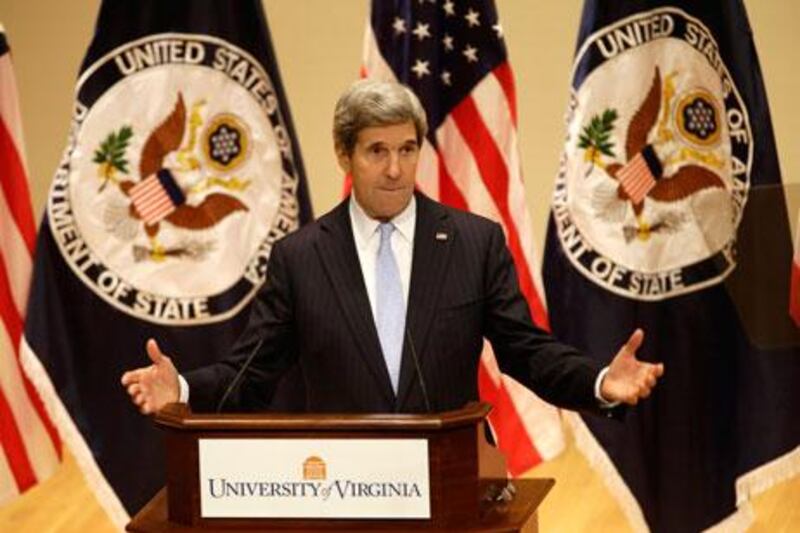NEW YORK // As massive budget cuts loom in Washington, the secretary of state, John Kerry, warned yesterday that the United States must not scale back foreign assistance to struggling economies in North Africa and the Middle East.
Mr Kerry delivered his first speech as the US's top diplomat just four days before he leaves on his first foreign trip in the role, which will include stops in Egypt, Turkey Saudi Arabia, Qatar and the UAE, where he will likely discuss GCC concerns about Iran's nuclear programme.
The majority of people in the Middle East and North Africa are younger than 30 years old, Mr Kerry said in his speech in front of students at the University of Virginia.
"We have an interest in helping these young people to develop skills," he said, "so that they can … start rebuilding their broken economies rather than engaging in terrorist or other kind of extremist activity."
He called on Congress to end the "senseless cuts" that threaten to impose automatic, across-the-board cuts of US$1.2 trillion (Dh4.4 trillion) over the next decade.
A sum of $2.6 billion in aid, security assistance and other international programmes would be jeopordised, the State Department has said of the cuts.
"We can't be strong in the world unless we are strong at home," Mr Kerry said.
Mr Kerry argued that well-funded US diplomacy and aid ensures that American businesses remain competitive in the global economy.
"We can be complacent or we can be competitive as new markets bloom in every corner of the globe … and they will with or without us," he said.
Mr Kerry was expected to meet Israeli and Palestinian leaders in a push to put the peace process back on track, but the itinerary announced on Tuesday omitted Israel and the West Bank.
A State Department spokeswoman, Victoria Nuland, said the post-election political landscape in Israel was still developing and that Mr Kerry would visit later.






